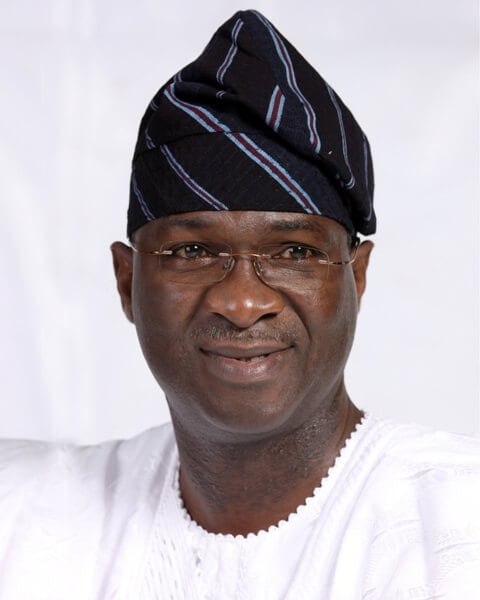
By Abah ADAH, Abuja
As preparations towards the 2023 General Elections in Nigeria gather momentum, Minister of Works and Housing, Mr Babatunde Fashola, has challenged the people to know what they will be voting for by interrogating the both the presidential and governorship candidates on how they will end the incessant power grid collapses, strengthen the Nigerian Electricity Regulatory Commission (NERC) and deliver improved power supply among other issues.
Fashola who gave the advice while delivering the keynote address on the occasion of the 6th Annual Babatunde Raji Fashola (BRF) gabfest titled: “What am I voting for?” noted that responsibility for electricity is not that of the federal government alone, but also that of the states and the private sector constitutionally.
READ ALSO: You’re to boost access to housing by Nigerians – Fashola tasks new FMBN board
He said, “The reality we must deal with is that the assets to generate and distribute power has been sold to private businesses. Federal government now only controls the transmission, which is the transport-like side of a supply chain.
“Production and distribution are now private businesses. Admittedly FGN is still the regulator and has powers to sanction non-performers.
“These are the questions you should be asking any person who wants to be your next president: What are you going to do to make sure that the power transport vehicle does not break down?; what are you going to do about the Nigerian Electricity Regulatory Commission (NERC) to make it more efficient?
“But please note that responsibility for electricity is not only the federal government’s alone. By the third alteration to the constitution in 2010, item 14 a, b and c have been added to the concurrent list of the 1999 constitution empowering state governments to generate, transmit and distribute electricity in areas not covered by the national grid. Please ask your governorship candidates what they want to do.
“By the mini-grid policy which I initiated, you can now generate your own embedded power under license. Please go to the NERC website for details.
“NEPTUNE PRIME reports that the Nigeria Consumer Protection Network (NCPN), recently appealed to the presidential candidates of the various parties claiming they will fix the Nigeria’s power sector, to refrain from promising Nigerians megawatts of electricity on the pages of newspapers and social media just to get to power and fail like their predecessors.
In the count down to the elections, some contestants, knowing that the very critical power sector has performed abysmally over the years to the disappointment of all Nigerians,have in their manifestos promised to fix the sector and increase generation in order to improve power supply.
The President, NCPN, Kunle Olubiyan, who made the call in a statement said the presidential candidates have to tell Nigerians how they wil do it and how feasible their plan is, and stop making “bogus” promises that they will not realise.
In buttressing his argument that attention should also be focused on the states and even the local government areas authorities for the people’s socio-econmic needs, Fashola switched to the road sector and said it was pertinent for the people to know that out of the over 200,000 kilometres (km) of roads in Nigeria, the federal government owns 35,000km (17.5%); the state government own 31,000km (17.5%), while the local governments combined own 132,000km (65%).
“Therefore, you will see how critical local governments are to our mobility, our ability to trade, our ease of doing business and getting things done efficiently.
“Put differently, what percentage of people need to move from one state to another daily to earn their livelihood as against the number that need to move from their ward to another to go to school, work and their places of business.
“When you factor the number of people in Nigeria who are traders, you should be interested in the local government because the constitution makes them responsible for markets,” the Minister explained.
He said the constitution is very clear on the responsibilities of all the parties involved in managing resources and providing social services in the collective interest of the people.
“If you look at the second schedule of the constitution, you will see two parts. Part one contains matters over which only the federal legislature (the Senate and the House of Representatives) can make laws. These are the responsibilities of the federal government that constitute the exclusive legislative list.
“Part two contains matters on which both the federal government and the states can make laws.
“In this part, states are at liberty to go on their own. So, we have state roads, state schools (secondary and tertiary), state hospitals (General and Tertiary).”These are matters over which legislators can make laws at federal level and state levels,” Fashola said.
On the whole, Fashola insist.ed that the responsibility of providing other equally critical social services and public utilities, especially security, education, health, employment, etc. for the people rests squarely on the shoulders of the federal, state, local governments and even the private sector.
Follow the Neptune Prime channel on WhatsApp: https://whatsapp.com/channel/0029Va74ZvU2v1IqKByXoX3d
Do you have breaking news, interview request, opinion, suggestion, or want your event covered? Email us at neptuneprime2233@gmail.com

